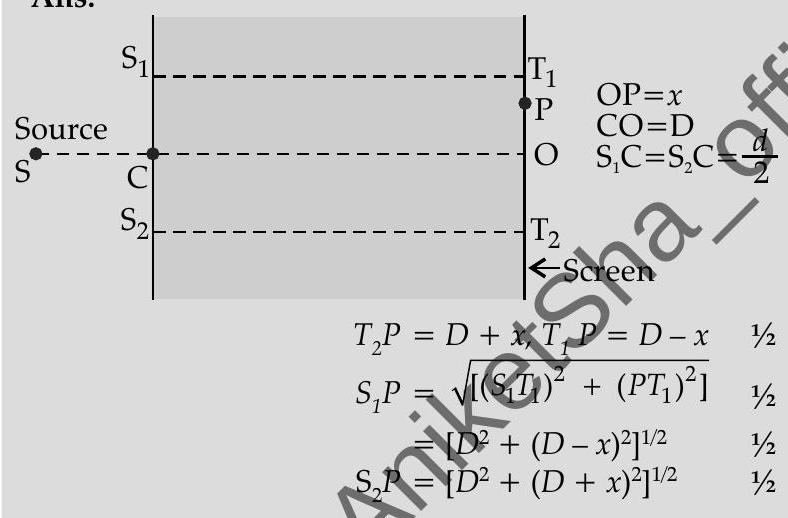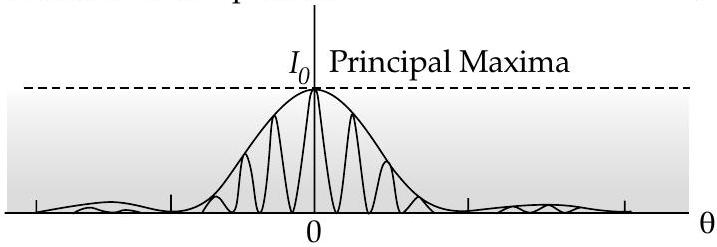wave-optics Question 23
Question: Q. 6. Consider a two slit interference arrangement (shown in figure) such that the distance of the screen from the slits is half the distance between the slits. Obtain the value of
U] [SQP 2016]
Show Answer
Solution:
Ans.

Minima will occur when
If
[CBSE Marking Scheme 2016]
[II Q. 7. Explain by drawing a suitable diagram that the interference pattern in a double slit is actually a superposition of single slit diffraction from each slit. Write two basic features which distinguish the interference pattern from those seen in a coherently illuminated single slit.
Ans. The diagram, given here, shows several fringes, due to double slit interference, ‘contained’ in a broad diffraction peak. When the separation between the slits is large compared to their width, the diffraction pattern becomes very flat and we observe the two slit interference pattern.
1

Two basic features :
(i) The interference pattern has a number of equally spaced bright and dark bands while diffraction pattern has a central bright maxima which is twice as wide as the other maxima.
(ii) Interference pattern is the superposition of two waves originating from two narrow slits. The diffraction pattern is a superposition of a continuous family of waves originating from each point on a single slit.
(iii) For a single slit of width ’
2 diffraction pattern occurs at an angle of
(Any two) 1






